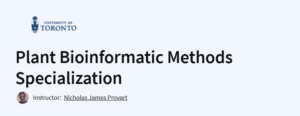What you will learn in Introduction to Sustainability Course
Sustainability Fundamentals: Understand the core principles of sustainability, including its environmental, social, and economic dimensions.
Population Dynamics: Explore how human population growth impacts resource consumption and environmental degradation.
Ecosystem Services: Learn about the essential services provided by ecosystems and their role in sustaining life on Earth.
Global Change: Examine the causes and consequences of global environmental changes, such as climate change and biodiversity loss.
Energy Systems: Understand the importance of sustainable energy sources and their role in reducing environmental impact.
Agriculture and Water: Study sustainable agricultural practices and water management strategies to ensure food and water security.
Environmental Economics and Policy: Gain insights into the economic aspects of environmental issues and the policies designed to address them.
Ethics and Cultural History: Reflect on the ethical considerations and cultural perspectives that influence sustainability practices.
Program Overview
Sustainability Fundamentals
⏳ 24 hours
Understand the core principles of sustainability and its interconnectedness with the environment, society, and economy.
Population and Resources
⏳ 24 hours
Explore the impact of population growth on resources and the environment.
Ecosystem Services
⏳ 24 hours
Learn about ecosystem services, their importance, and the role they play in sustainability.
Global Change and Sustainability
⏳ 24 hours
Study the causes and impacts of global environmental changes, including climate change and biodiversity loss.
Sustainable Energy Systems
⏳ 24 hours
Examine sustainable energy systems and their role in addressing climate change.
Sustainable Agriculture and Water Management
⏳ 24 hours
Explore sustainable agricultural practices and water management strategies for food and water security.
Environmental Economics and Policy
⏳ 24 hours
Understand environmental economics, policies, and how they address sustainability challenges.
Ethics and Cultural Perspectives on Sustainability
⏳ 24 hours
Study the ethical considerations and cultural influences on sustainability practices.
Get certificate
Job Outlook
Proficiency in sustainability is valuable for roles such as:
Sustainability Analyst
Environmental Consultant
Policy Advisor
Corporate Social Responsibility (CSR) Manager
Skills acquired in this course are applicable across various industries, including government, non-profit organizations, and private sector companies.
Completing this course can enhance your qualifications for positions that require a solid understanding of sustainability principles and practices.
Specification: Introduction to Sustainability
|
FAQs
- Explores environmental, social, and economic sustainability.
- Covers key issues like climate change, resource use, and equity.
- Teaches frameworks for sustainable decision-making.
- Provides a holistic view of sustainability as applied globally.
- No prior environmental or science knowledge required.
- Content is explained in clear, accessible language.
- Designed for students, professionals, and curious learners.
- Builds knowledge progressively from basics to deeper concepts.
- Develops systems thinking to analyze global challenges.
- Equips learners to assess energy, water, and resource use.
- Builds ability to evaluate sustainability trade-offs in real situations.
- Prepares for sustainability-related roles in business, government, and NGOs.
- Directly addresses climate change and environmental degradation.
- Discusses global inequality and sustainable development goals.
- Links sustainability to food, energy, and urban systems.
- Encourages critical reflection on present and future challenges.
- Relevant for careers in business, government, NGOs, and education.
- Supports roles in energy, urban planning, corporate sustainability, and policy-making.
- Adds value to professionals in engineering, law, and economics.
- Builds a foundation for advanced study or specialized sustainability fields.





